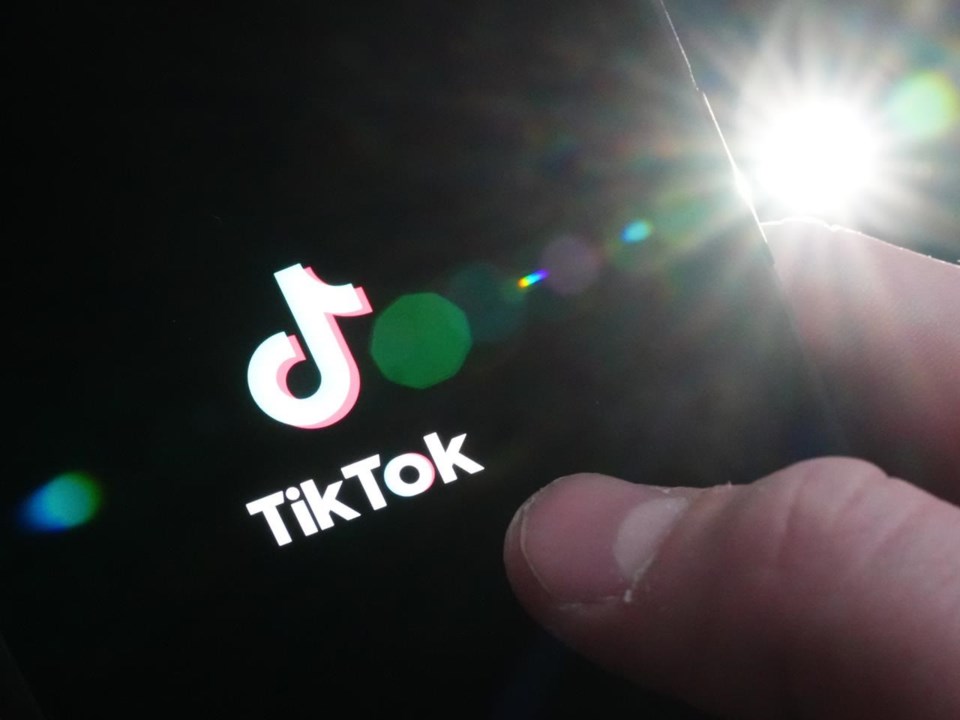Saskatchewan and three Atlantic provinces became the latest jurisdictions Wednesday to ban the use of the TikTok social media app on government-owned devices.
The moves came pending the results of a threat assessment by the federal government.
In a news release, the province of Newfoundland and Labrador said the decision was based on several risk factors, including TikTok's data collection methods and the legal regime governing the information collected.
“The security of our networks and data is top priority, and we will take all necessary measures to ensure its integrity," Sarah Stoodley, the province's minister of digital government and service said. "This is a proactive step to safeguard the people and data we protect."
The ban in Newfoundland and Labrador was to go into effect on Thursday.
Nova Scotia and Prince Edward Island were taking action effective Wednesday.
The Nova Scotia government said TikTok's data collection methods provide substantial access to data on mobile devices, making users "vulnerable to surveillance."
Service Nova Scotia Minister Colton LeBlanc said there is no need for the app to be on government-issued devices.
"There are also concerns about the legal regime that governs the information collected," LeBlanc said. "There is no evidence at this time that foreign actors have compromised government information."
The Prince Edward Island government said the move is a proactive measure to protect the privacy and security of government information.
"The changes are being made as TikTok’s mobile data collection methods include the ability to access more information than is necessary for the application to function," the province said in a release.
"Currently, there is no evidence suggesting that any information belonging to the Government of P.E.I. has been compromised."
The Saskatchewan government said it decided on the ban after discussions with its information and privacy commissioner and their federal counterpart.
The ban applies to all Saskatchewan government ministries, Crown corporations and agencies and is also to be adopted by the Saskatchewan Party government caucus.
Provincial and federal privacy watchdogs recently announced an investigation delving into whether TikTok complies with Canadian privacy legislation.
The chief information officer of Canada did a review of the Chinese-owned video-sharing platform and determined it posed an “unacceptable” level of risk to privacy and security.
That led to the federal government and House of Commons banning the app from government-owned devices earlier this week.
The Alberta and Quebec governments, as well as the City of Calgary, have also prohibited TikTok on government-issued devices. Officials in Ontario and Manitoba confirmed they are looking at taking similar action.
The British Columbia government also said it is temporarily banning the application “out of an abundance of caution.”
Lisa Beare, B.C.'s minister of citizens’ services and tourism, arts, culture and sport, announced the ban Monday on Twitter, saying the province would “continue to examine the issue.”
The United States announced Monday that all government agencies have 30 days to delete TikTok from federal devices and systems, and several other countries have followed suit, including India, Taiwan, Pakistan, Afghanistan, as well as the European Union.
The Chinese government has a stake in TikTok’s owner, ByteDance, and Chinese laws allow the country to demand access to user data.
The company that owns TikTok maintains that it does not share data with China’s government and its data is not held in that country.
This report by The Canadian Press was first published March 1, 2023.
-- With files from Sarah Smellie in St. John's and Michael MacDonald in Halifax
___
This story was produced with the financial assistance of the Meta and Canadian Press News Fellowship.
Emily Blake and Kelly Geraldine Malone, The Canadian Press
Note to readers: This is a corrected story. A previous version said the ban in Nova Scotia starts Thursday.




